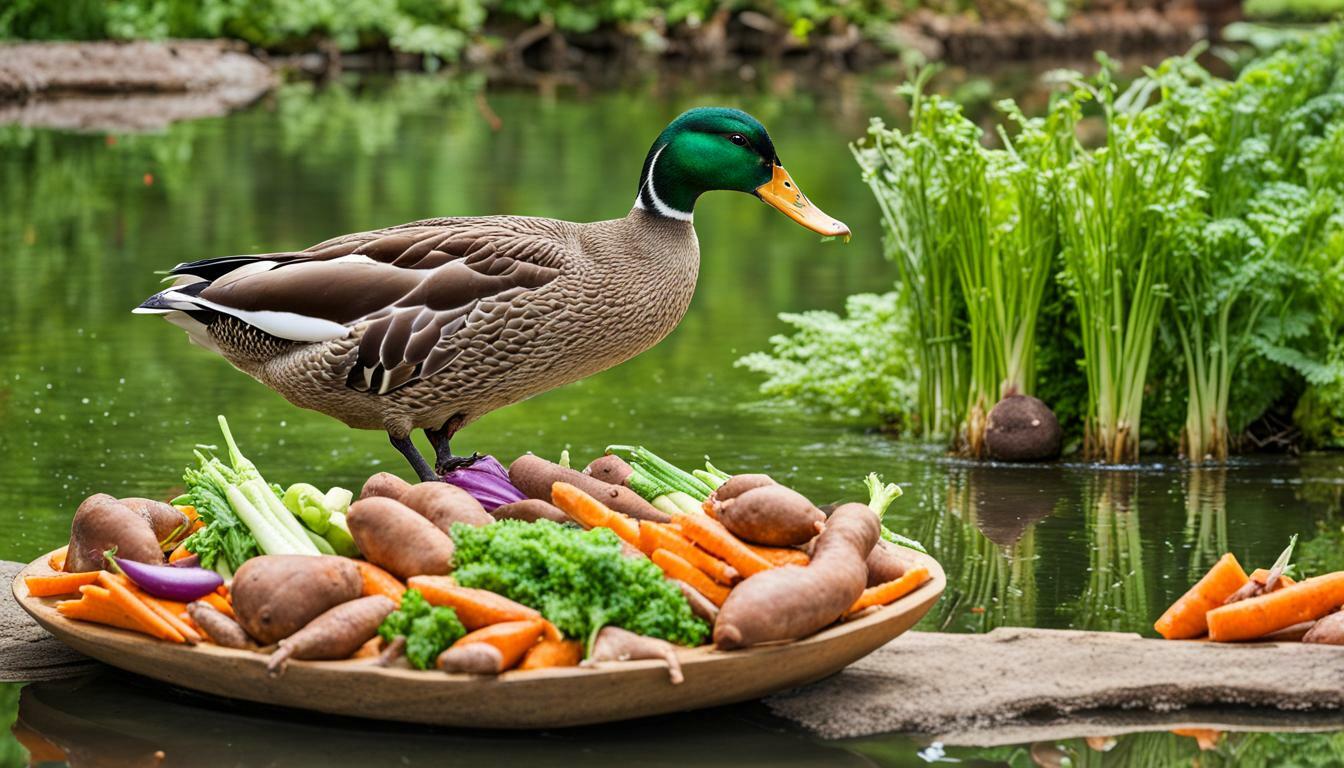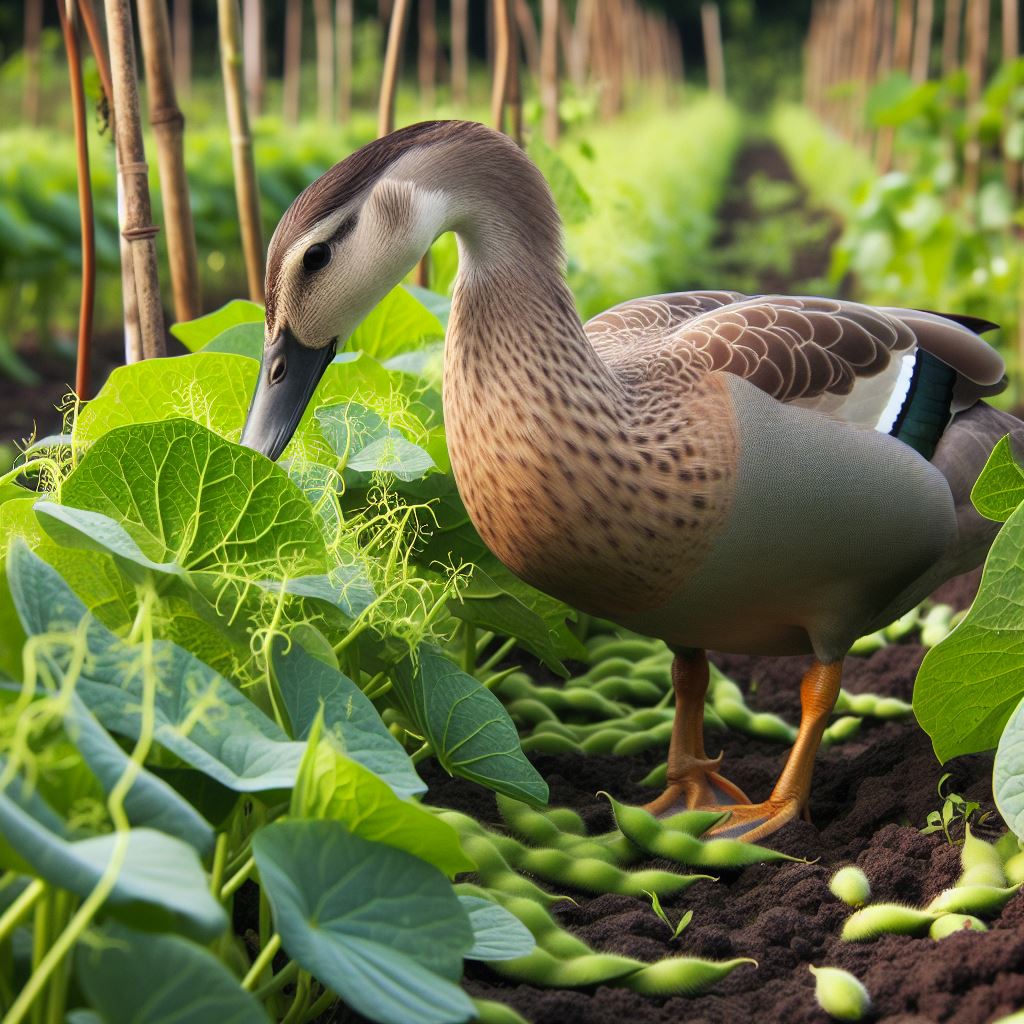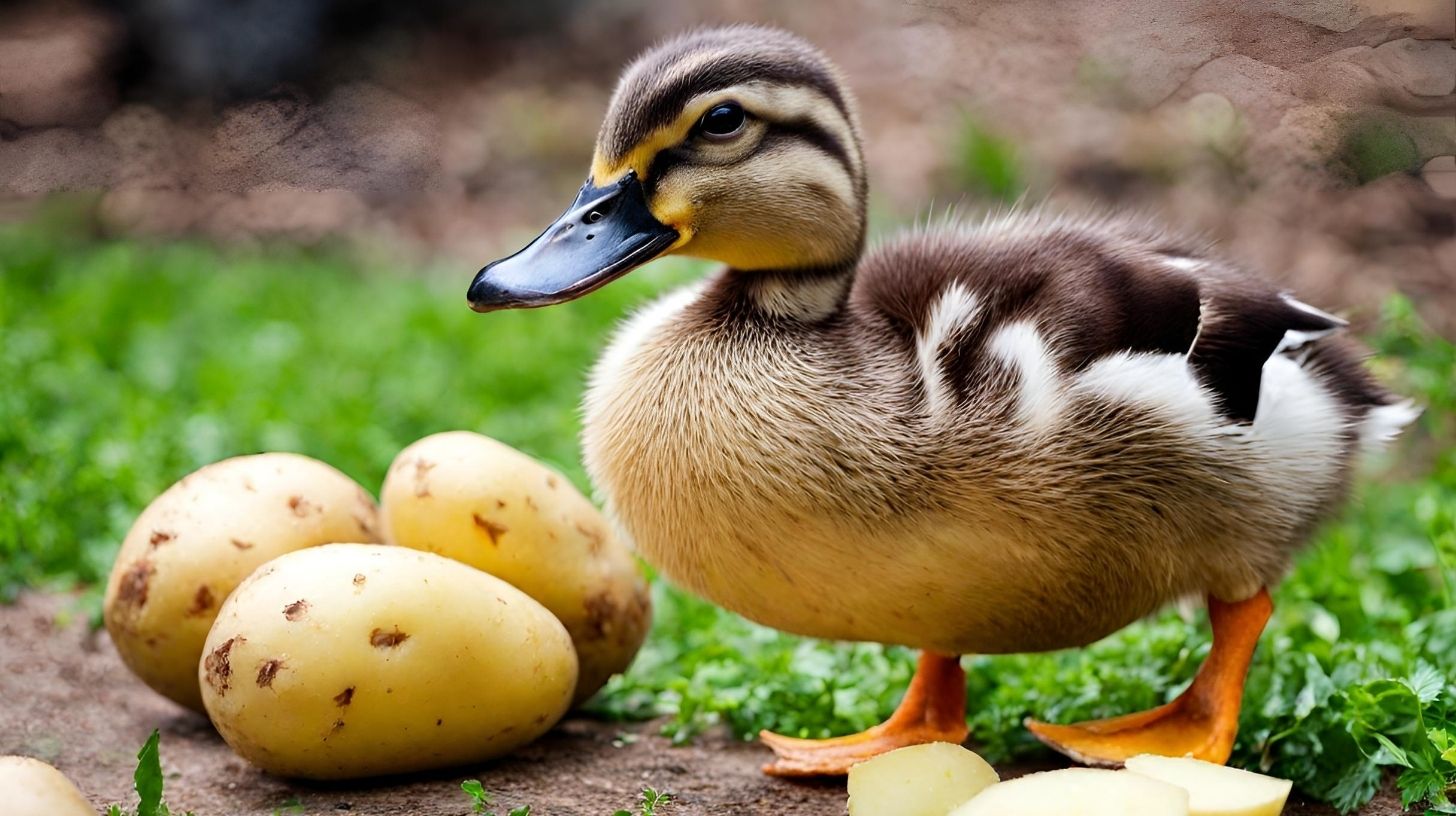What Flowers Can Ducks Eat? Non-Toxic Blooms as Treats
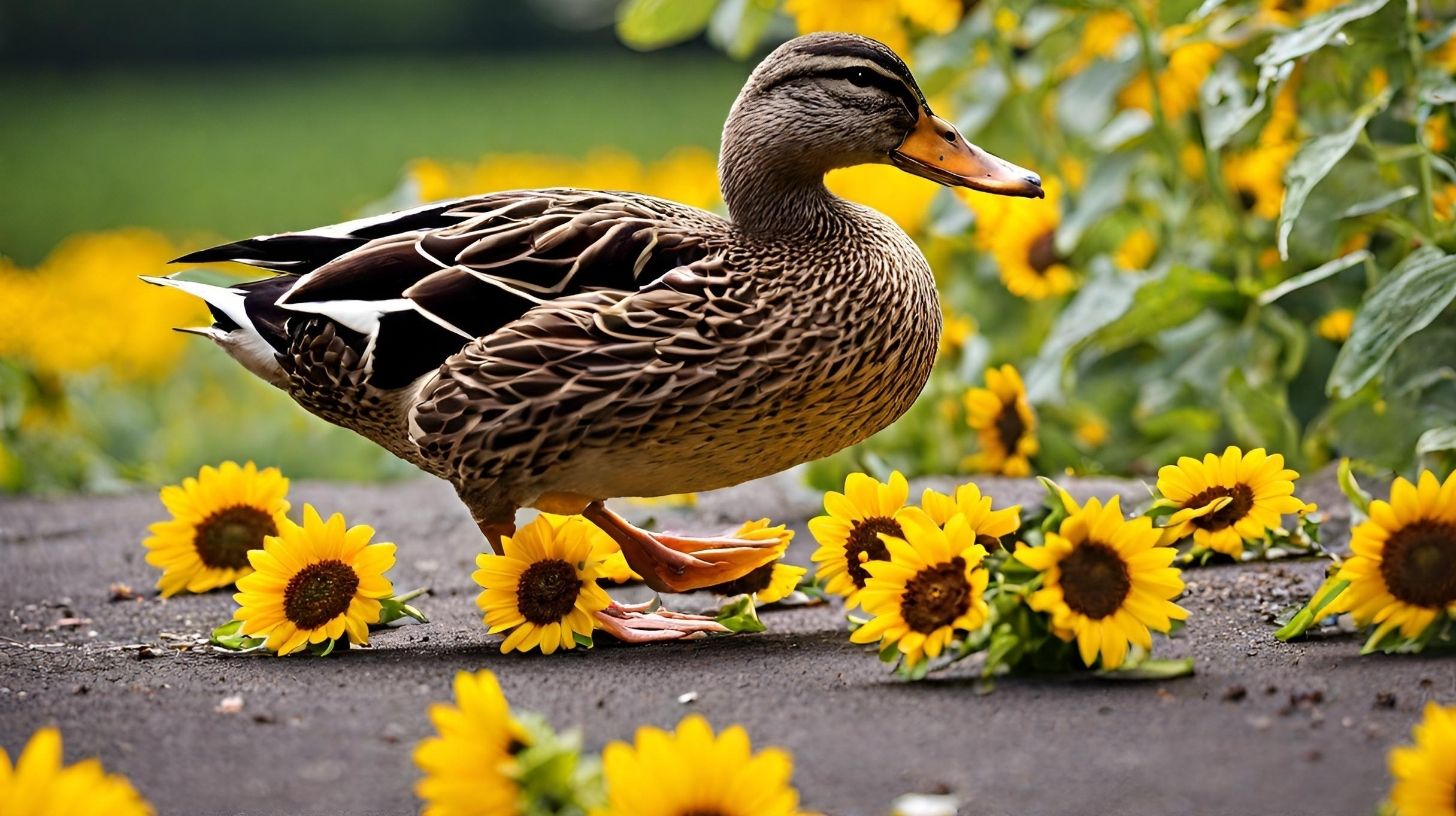
Table of content:
- What Types of Flowers Can Ducks Eat?
- Flowers to Avoid Feeding Ducks
- What Other Plants Can Ducks Eat?
- How Much and How Often to Feed Ducks Flowers
- How Do Ducks Eat Flowers in the Wild?
- Frequently Asked Questions About Feeding Ducks Flowers
- Can I feed ducks florist flowers or bouquet trimmings?
- What are some easy-to-grow flowers I can plant for my ducks?
- Should I chop large flowers before feeding?
- How often can I offer my ducks fresh produce and flowers?
- What are signs my duck should not eat a certain flower or plant?
- Should I rinse flowers before feeding?
- Conclusion
As omnivores, ducks can consume a diverse diet of plants and animals. Ducks kept as pets or on farms are often fed a commercial feed formulated for their nutritional needs. However, ducks also enjoy foraging on fresh greens, fruits, flowers, and insects when allowed to graze.
For duck owners looking to supplement their pet’s diet or ducks living near gardens, certain flowers make nutritious and appealing treats.
Key Takeaways:
- Ducks are omnivores and can eat a variety of flowers, including sunflowers, dandelions, zinnias, roses, and marigolds.
- Avoid feeding ducks flowers from the nightshade family like tomatoes as they can be toxic.
- Ducks enjoy leafy greens like lettuce and spinach in addition to fruits like berries, melons, apples, and grapes.
- When foraging in the wild, ducks will eat flower heads, pollen, seeds, and leaves.
- Research what is safe for ducks before offering garden flowers, produce, or ornamental plants.
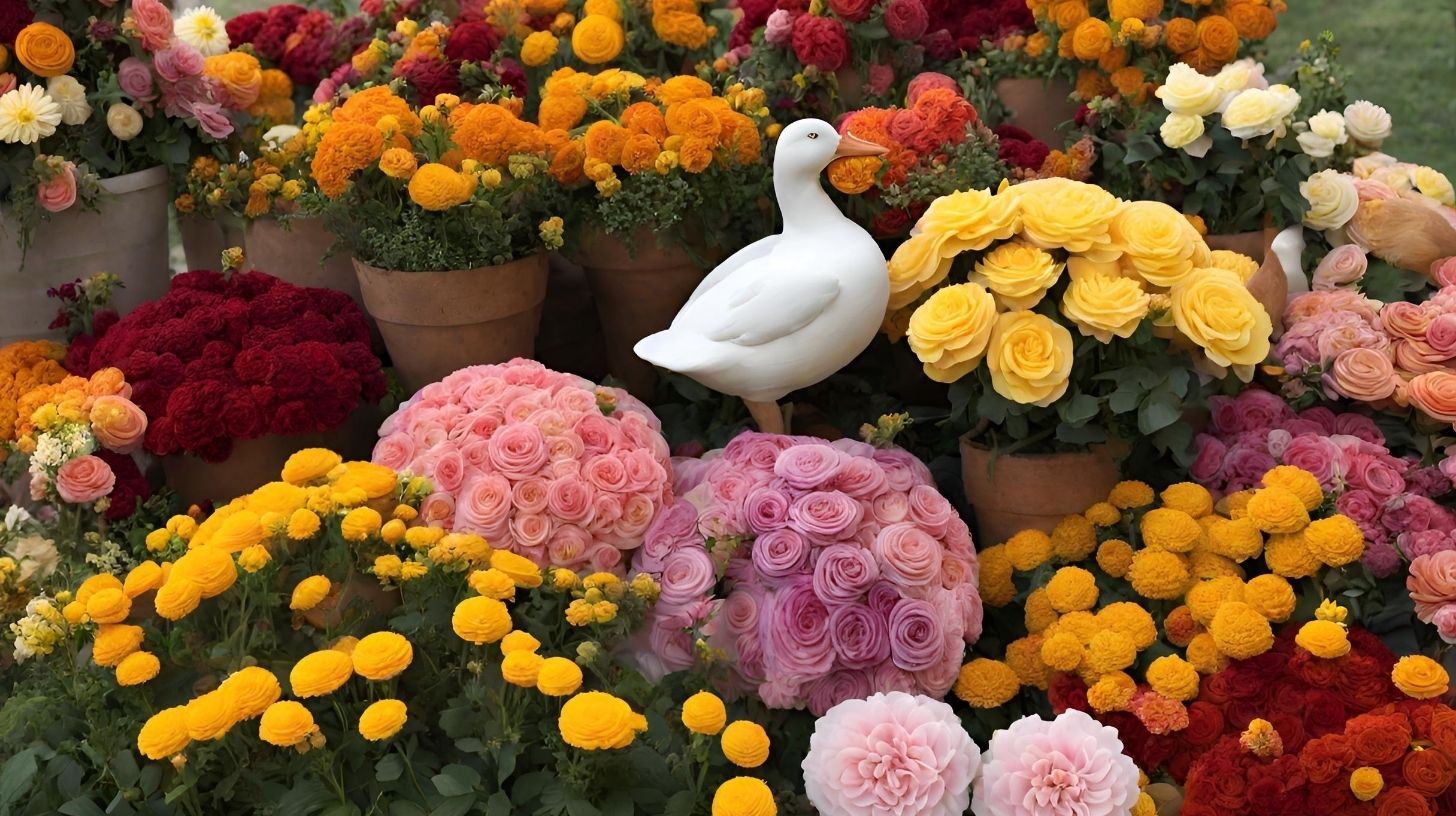 What Types of Flowers Can Ducks Eat?
What Types of Flowers Can Ducks Eat?
Many brightly colored garden flowers turn out to be perfectly edible for ducks. When foraging in the wild, ducks consume a variety of flower heads, pollen, seeds, and leaves. Here are some of the most common flowers ducks can eat:
Flowers Ducks Can Safely Eat
- Sunflowers: The entire sunflower plant is edible for ducks including the flower petals, head, stem, leaves, and seeds. Sunflowers provide nutrients like protein and fat.
- Dandelions: Both the yellow flower and the green leaves of dandelions are a favorite food source. Dandelions provide beta-carotene, vitamins, and minerals.
- Zinnias: These colorful flowers are non-toxic for birds. Ducks eat both the petals and the seeds of zinnias.
- Roses: Rose blooms, leaves, hips, and thornless stems are all edible for ducks and provide nutrients.
- Marigolds: These ornamental flowers provide ducks with lutein which is great for eye health. The leaves, stems, and petals can all be eaten.
- Nasturtiums: All parts of nasturtiums are edible for ducks and provide vitamin C. Both the flowers and round leaves have a peppery flavor.
When feeding ducks flowering plants, make sure they have not been treated with pesticides or other chemicals. Seek out organic, homegrown flowers whenever possible. Ducks gravitate towards brightly colored blooms with strong scents and flavors.
Flowers to Avoid Feeding Ducks
While ducks can safely eat a wide assortment of flowers, some common ornamental flowers and plants are toxic for ducks and must be avoided:
- Buttercups: All parts of buttercups are poisonous to ducks and contain a toxin that can cause diarrhea, mouth blisters, and upset stomach. Never let ducks graze in an area containing buttercups.
- Foxgloves: The entire foxglove plant is very poisonous to ducks and can cause heart problems. Do not allow ducks access.
- Hydrangeas: While not deadly, hydrangeas can cause stomach upset in ducks. It’s best not to let ducks forage near these showy shrubs.
- Iris: The underground bulbs of irises are toxic to ducks and ingesting can cause intestinal distress. Keep ducks away from areas where irises are planted.
- Lilies: True lilies like Asiatic hybrid lilies and Easter lilies are very poisonous and eating even a small amount can be fatal. Never feed lilies to ducks.
- Nightshade family: Tomatoes, potatoes, eggplants, and peppers are all part of the nightshade family and contain toxins that can sicken ducks. Do not allow ducks to eat these.
- Rhododendrons & azaleas: All parts of these flowering shrubs contain toxins that can be deadly to ducks. Avoid areas where they grow wild or are landscaped.
It’s important to properly identify plants before feeding them to ducks. When in doubt, reference a reputable guide on plants safe for birds. Ducks themselves tend to have a good instinct for what is safe to consume when foraging naturally.
What Other Plants Can Ducks Eat?
In addition to flowers, ducks enjoy eating a variety of fruits, vegetables, and leafy greens. Ducks are omnivores, not strict vegetarians, and need a balanced diet. But the following produce can make great supplemental treats:
Fruits Ducks Can Eat
- Berries like strawberries, blueberries, raspberries
- Melons such as cantaloupe and watermelon
- Apples, chopped
- Citrus fruits like oranges and clementines
- Grapes, halved to avoid choking
Vegetable Ducks Can Eat
- Leafy greens like lettuce, spinach, kale, Swiss chard
- Peas and sweet corn kernels
- Broccoli and cauliflower florets
- Green beans and carrots, chopped
- Squash like pumpkin or zucchini
- Sprouts like bean sprouts or alfalfa
When introducing new foods, keep an eye out for any signs of allergies or upset stomach. Always chop produce into bite-sized pieces to prevent choking. Most fresh vegetables provide healthy vitamins, minerals, and phytonutrients for ducks. Stick to fruits and veggies designed to be eaten raw, not dried, salted, or seasoned products. Avoid avocados and rhubarb as they are toxic.
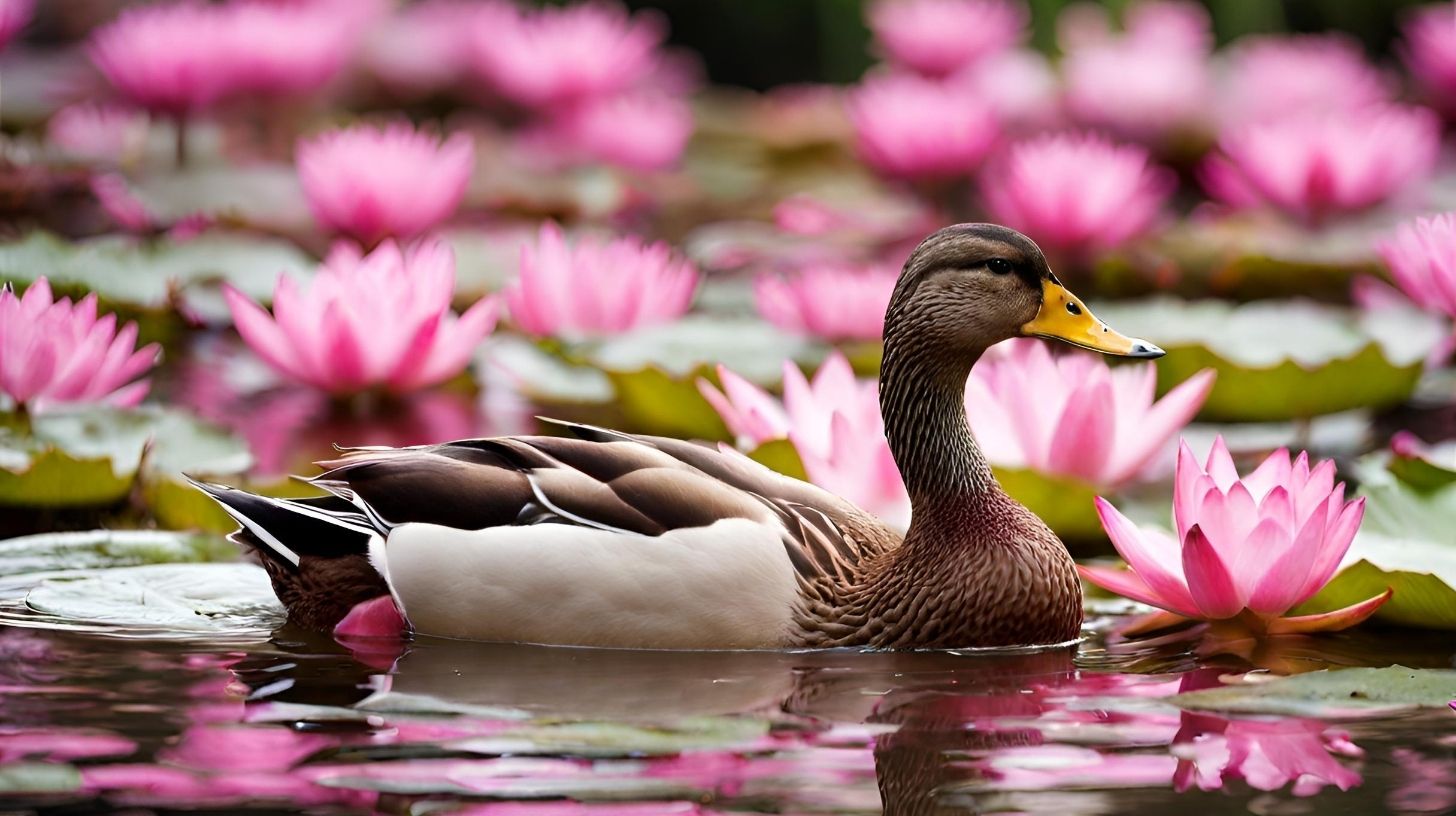 How Much and How Often to Feed Ducks Flowers
How Much and How Often to Feed Ducks Flowers
The amount of flowers and fresh produce to offer ducks depends on whether they are pets or wild waterfowl.
For pet ducks, leafy greens and vegetable scraps can make up around 20% of their daily diet. A handful of flowers or produce 2-3 times a week makes a great treat. Avoid overfeeding produce as too much can cause diarrhea.
For wild ducks, small amounts of flowers or greens are fine as supplemental foods but should not replace their natural foraging diet. Offer tidbits no more than once a week. Resist overfeeding.
Monitor to make sure all ducks are active, alert, and maintaining a healthy weight when receiving flowers or produce. Adjust amounts if ducks become overweight or lethargic. Provide clean drinking water at all times.
How Do Ducks Eat Flowers in the Wild?
Ducks belong to the family Anatidae and are a type of waterfowl. Wild ducks have varied diets depending on species, habitat, and season.
Some behaviors of how ducks forage naturally include:
- Dabbling at surface of water for aquatic plants, seeds, and invertebrates
- Grazing in marshes and wetlands for leafy greens and grasses
- Probing muddy bottoms for mollusks, worms, tubers
- Pecking at trees and fields for fruits, seeds, and terrestrial insects
In the wild, ducks exhibit some key foraging behaviors when eating flowers:
- Plucking flower heads and tearing off petals
- Cracking open flower stems to reach pith
- Nibbling leaves, pollen, stamen
- Filtering water to catch small flower debris
- Catching flying insects attracted to blooms
Flowers provide ducks with energy from nectar, nutrients from pollen, and carbohydrates from the stems and leaves. Some of the flowering plants wild ducks feed on include water lilies, arrowheads, smartweeds, and pickerelweeds.
Knowing what ducks eat in their natural habitat can help guide what safe, nutritious blossoms and plants to offer ducks in backyard ponds or farms.
Frequently Asked Questions About Feeding Ducks Flowers
Here are answers to some common questions about feeding ducks flowers:
Can I feed ducks florist flowers or bouquet trimmings?
No, florist flowers may contain pesticides or preservatives. Stick to homegrown or wildflowers known to be edible for ducks. Always check non-toxic lists before feeding.
What are some easy-to-grow flowers I can plant for my ducks?
Some easy duck-friendly flowers are nasturtiums, sunflowers, pansies, daisies, impatiens, and bee balm. Plant them around the edges of ponds or in hanging baskets that ducks can reach.
Should I chop large flowers before feeding?
Yes, it’s best to chop or tear large flower heads like sunflowers into bite-sized pieces. Remove thorns, tough stems, or other hard parts that could pose a choking hazard or injure your duck’s throat or digestive tract.
How often can I offer my ducks fresh produce and flowers?
For pet ducks, a few times a week is fine. For wild ducks, offer small supplementals no more than once a week. Avoid overfeeding as too much can cause health issues. Monitor ducks closely for any adverse reactions.
What are signs my duck should not eat a certain flower or plant?
Stop feeding if you observe vomiting, diarrhea, loss of appetite, weakness, or other concerning symptoms. Toxic plants can cause these issues. When in doubt, consult an avian veterinarian about potential toxicity.
Should I rinse flowers before feeding?
Yes, gently rinse flowers under running water and pat dry before feeding to remove dirt, debris, pesticides, fertilizers, or other residues. Even backyard flowers can harbor risks so take this precaution.
Conclusion
In conclusion, ducks are omnivorous birds that can eat a wide variety of flowers as part of a balanced diet. When feeding ducks flowers, focus on providing organic, non-toxic choices known to be safely consumed by ducks. Some duck-friendly flowers include nasturtiums, sunflowers, marigolds, zinnias, and roses – but be sure to avoid deadly poisonous varieties.
Pair flowers with chopped fruits, leafy greens, vegetables, and healthy duck feed. Both wild ducks and domestic ducks can benefit from flower feeding when done properly, supplementing their nutrition intake from natural foraging behaviors.
With attention to their favorite edible blooms and potential risks, flower feeding can be an enjoyable way to provide ducks with natural bioactive compounds while allowing observation of their foraging instincts in action. The beauty and nutritional value of flowers turns out to be something both humans and ducks can appreciate.
Welcome. I’m Adreena Shanum, the proud owner of this website, and I am incredibly passionate about animals, especially poultry. I founded adreenapets.com as a labor of love, stemming from my desire to share my knowledge and experiences with poultry enthusiasts worldwide.


